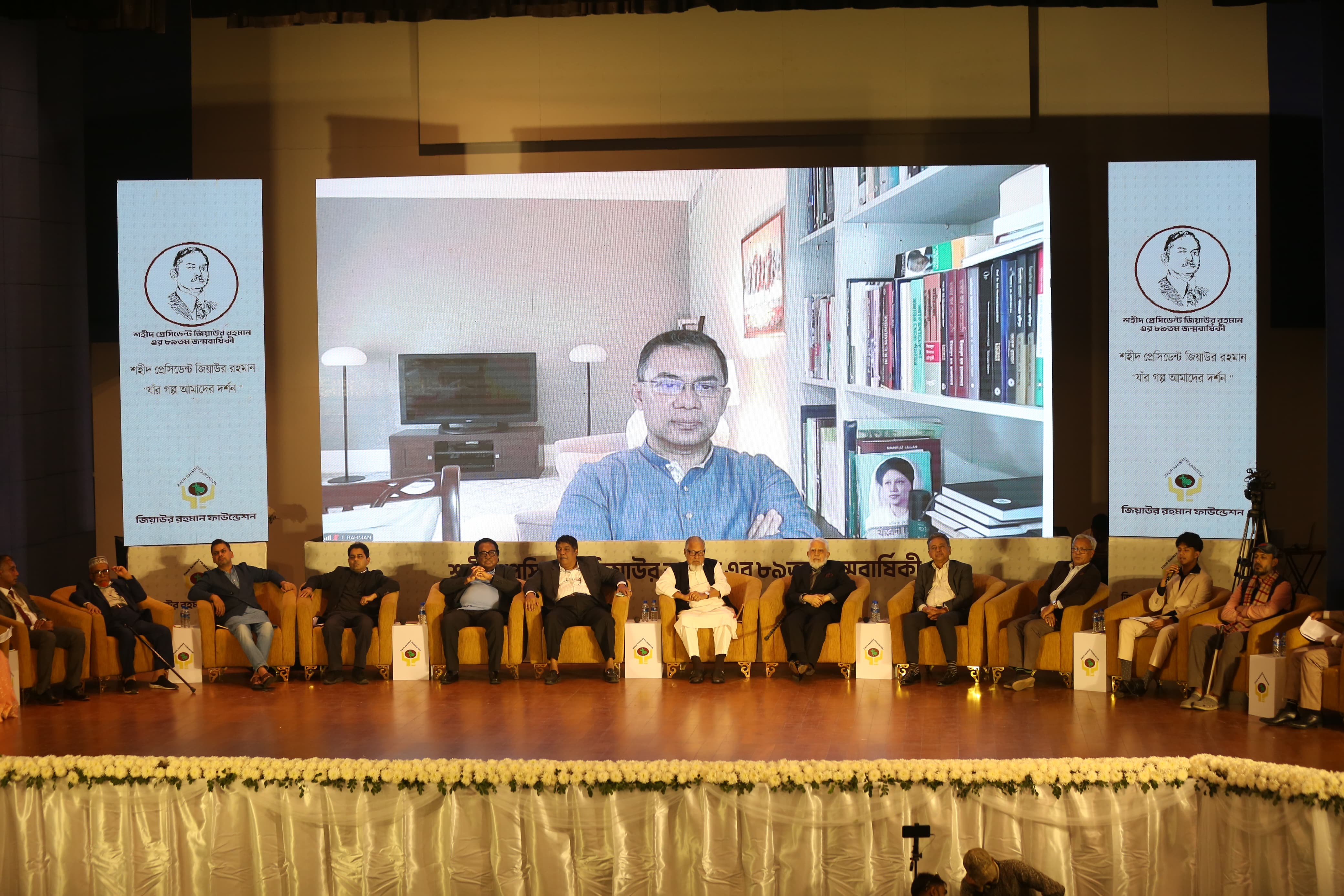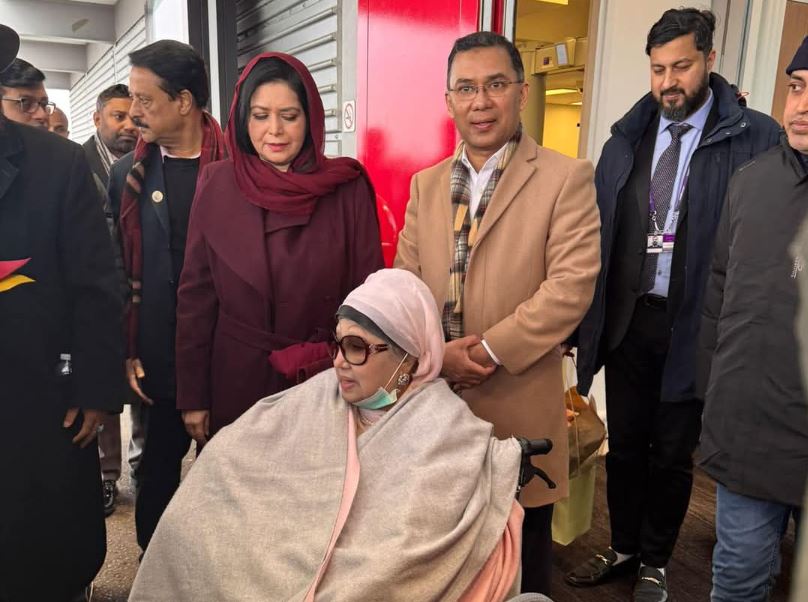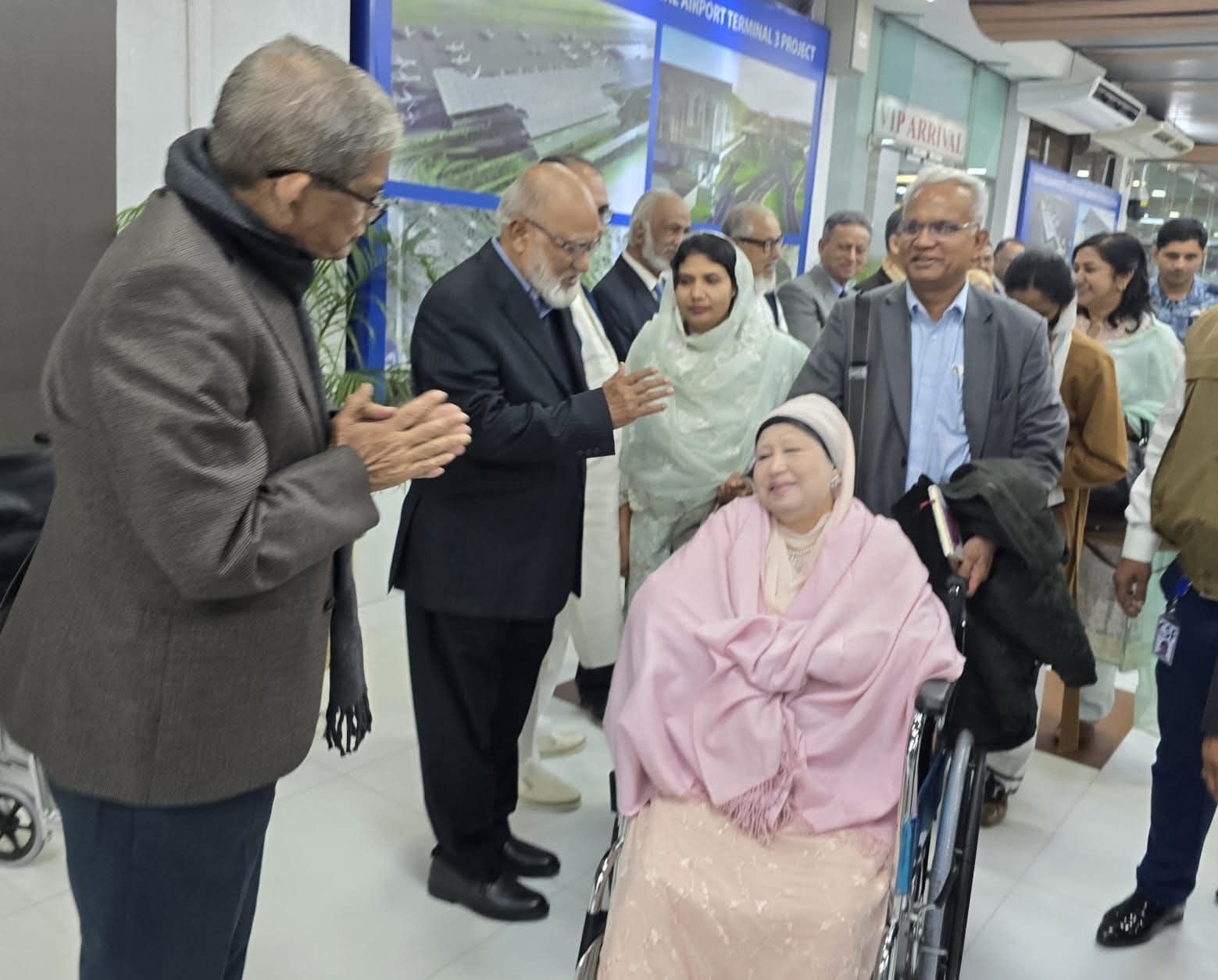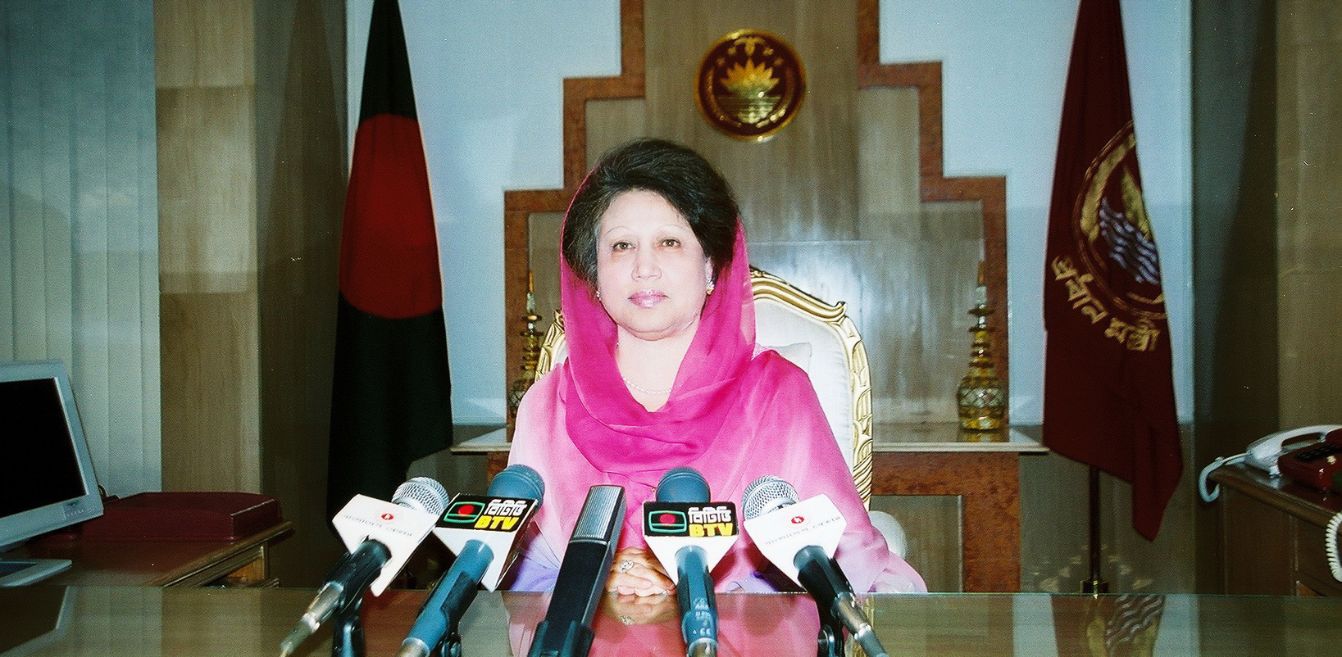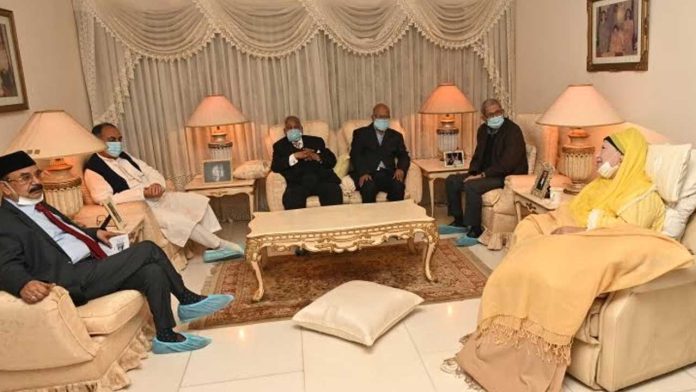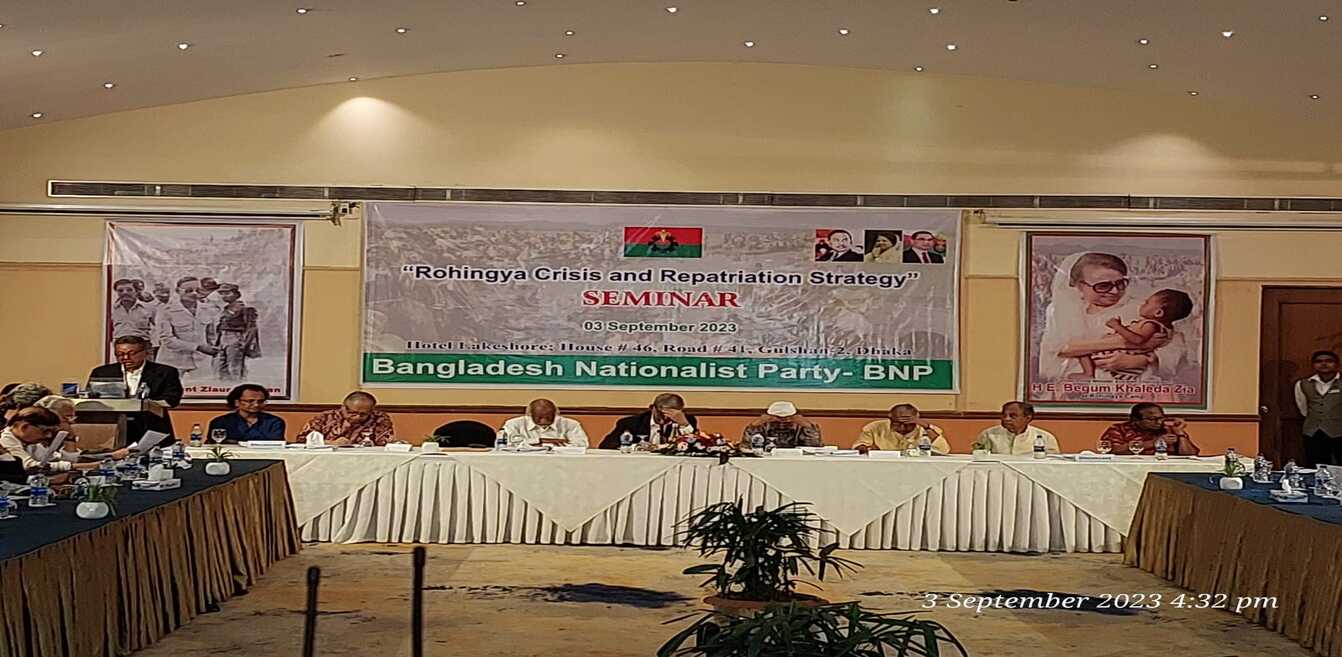
The Rohingya population has endured persecution, violence, and discrimination within their home country of Myanmar, compelling them to flee and seek refuge in Bangladesh over the past five decades. The major displacements occurred in 1978, 1992 and 2017. In the period of August- September 2017, during the civilian rule of Aung San Suu Kyi, Myanmar's military conducted a severe crackdown on Rohingya villages and townships in Rakhine, resulting in over 740,000 individuals crossing the Naf river and seeking refuge in Bangladesh. Tragically, an estimated 25,000 Rohingyas lost their lives during this offensive, with thousands of women subjected to rape and brutal torture.
This crackdown is presently under investigation by a UN court for potential genocide. In March 2022, the United States formally determined that the Myanmar military had indeed committed acts of genocide and crimes against humanity against the ethnic Rohingya Muslims. This historic declaration, as Secretary of State Anthony Blinken stated, reaffirms the human rights and dignity of the Rohingyas, which the Burmese military has endeavoured to destroy.
In November 2017, the current Awami League regime, lacking democratic legitimacy, hastily signed a repatriation agreement with Suu Kyi's government. Experts and military observers who closely scrutinized the agreement deemed it deeply humiliating, as it grants the Myanmar government complete authority to dictate the terms of repatriation for Rohingyas, their own people to Rakhine. Observers predict that, based on this agreement, which permits the return of 300 individuals per day and 1,500 per week, it will take until at least 2046 to repatriate over one million Rohingyas currently residing in camps within Bangladesh's Cox's Bazar district.
We firmly believe that the ongoing humanitarian tragedy demands sustainable and meaningful action. The continued lack of progress in repatriating the Rohingya community, despite six years having passed since the genocidal clearance operation, is deeply concerning and unacceptable. Fact remains, not a single Rohingya refugee could be repatriated till date.
Holding Myanmar's government accountable for the brutal atrocities and working towards a sustainable solution that ensures safe, voluntary, dignified and sustainable return of the Rohingya to their homeland is a responsibility that falls upon the international community. This necessitates employing diplomatic pressure, imposing sanctions, and supporting endeavours to promote accountability, justice, and reconciliation within Myanmar.
Unfortunately, two previous attempts at repatriation have failed. Under a new agreement, Myanmar has now agreed to accept the return of 1,176 Rohingyas to what the Myanmar junta claims are model villages in Maungdaw township, as part of a pilot repatriation project. Independent experts and human rights groups monitoring this latest repatriation attempt have described these model villages as internally displaced persons (IDP) camps. Since the outbreak of anti-Muslim riots in 2012, more than 130,000 Rohingyas have already been confined to IDP camps in Rakhine currently.
We perceive this new repatriation attempt as a trap, which will only perpetuate the persecution faced by one of the world's forgotten minorities.
On December 21, 2022, the United Nations Security Council passed a historic resolution regarding the situation in Myanmar, a development we welcome. However, while the resolution acknowledges the basic needs of the people of Myanmar, we are disappointed to note the absence of provisions for justice and accountability for the gravest international crimes committed against the Rohingya people, including genocide. We urge the UN Security Council to take action and ensure that the Rohingya community can return to their homeland in Rakhine state in a dignified and protected manner, with full recognition of their ethnic and citizenship rights. Additionally, we call for full compliance with the provisional measures ordered by the International Court of Justice.
Throughout its history, the Bangladesh Nationalist Party- BNP has dealt with the Rohingya crisis twice, during its tenure in the late 1970s and early 1990s. On both the occasions, our party succeeded to create remarkable diplomatic pressure upon the Myanmar military regimes to repatriate the Rohingyas. Thanks to the unprecedented pressure exerted by our party's founder, President Ziaur Rahman, on the regime of General Ne Win in 1978, Myanmar was compelled to take back almost all 200,000 Rohingyas who were forced to flee to Bangladesh.
Begum Khaleda Zia, the Chairperson of our party, had applied similar pressure on Myanmar when over 250,000 Rohingyas sought refuge in Bangladesh after a major crackdown in 1992. Myanmar agreed to take back at least 2,36,000 Rohingyas, with only a fraction remaining in two refugee camps in Kutupalong and Nayapara.
As Bangladesh stands on the threshold of a historic transition, we believe that a fresh approach to the Rohingya crisis is necessary in order to find a sustainable and dignified solution to one of the world's longest-running humanitarian and political crises. Our objective is to ensure the voluntary and safe return of every single Rohingya individual to their homeland with dignity and full equal rights. Unfortunately, the current Awami League regime lacking popular legitimacy, is hindering the possibility of achieving a just resolution to the crisis. They have miserably failed to perceive the magnitude of the crisis. Their inability to take a multi-lateral and all-out effort to resolve the problem and to send even a single Rohingya back to their homeland is the government’s utter diplomatic failure. Instead of a multi-lateral global approach, this is not understood why the government is stubbornly taking a bilateral route. Various UN agencies and Human Rights organizations opined that an environment for safe and dignified repatriation has not been created in Myanmar as yet. Rohingya organizations are also opposing the proposed involuntary repatriation without recognition of their Myanmar citizenship. The United Nations Human Rights Council (UNHRC) claimed that the Bangladesh authorities are using ‘deceptive’ and ‘coercive’ measures to compel Rohingya refugees to return to Myanmar against their will. This statement of the UN rapporteur is undoubtedly a matter of concern for Bangladesh. It may be recalled the ruling Bangladesh government had earlier side-stepped the international community, including the UN, and signed a bilateral agreement with Myanmar for Rohingya repatriation that produced no result. At a time when the global community including the UN are opposed to any involuntary and unsustainable repatriation under the current political and security conditions in Rakhine, taking up by the Bangladesh government of an unrealistic ‘pilot’ or so-called ‘trial’ repatriation project again under a trilateral initiative will no doubt be a futile experiment and simply serve to ease the pressure built up on Myanmar, centering the Burma Act, the ICC actions and sanctions by the democratic countries like the USA and the EU.
An overall review of political and economic support for the Rohingya crisis till date demonstrates that, among others, the US, the UK, the European Union countries, Canada, Japan and Australia extended both political and economic support to the cause of the Rohingyas. China and Russia vetoed against UN Security Council’s condemnation of Myanmar and opposed any resolution against Myanmar by UN Security Council. Most democratic countries including the USA and EU imposed sanction in 2017 against several top Myanmar Generals. On the contrary some countries sold arms to Myanmar.
According to a UNOCHA statement of the international aid received for the Rohingyas from 2017 to 2023, the US has provided USD 1.61 billion in aid received so far, which is about 27% and according to US Secretary of State Anthony Blinken, the total US aid for the Rohingyas is USD 2.10 billion. Among others, the UK gave 417 million USD, the EU 260 million USD, Australia 238 million USD, Japan 174 million USD and Canada about 105 million USD. Russia gave 2 million and China gave 400,000 USD so far. Among Muslim countries, Saudi Arabia, UAE, Turkiye and Qatar and several foundations have given money to the OCHA fund. The figure is available in the records of OCHA’s financial recording service. On 14 September 2017, India pledged 53 tonnes of relief materials under operation ‘Insaniat’, and another 7 thousand tonnes later. Besides, various countries may have provided assistance for the Rohingyas on a bilateral basis.
When a government lacks popular democratic mandate, it resorts to outsourcing its foreign policy to external powers to whom repatriation of Rohingya refugees is not the priority. Should BNP assume power, resolving the Rohingya crisis will be our top national and foreign policy priority, focusing on finding a permanent solution to this complex crisis. The Rohingya people have endured immense suffering, and it is our moral responsibility to seek a dignified solution to this protracted crisis.
Here are some of the priorities we have outlined to address the ongoing crisis more effectively:
1. Increasing engagement with the UN and international community to address the crisis.
2. UN should supervise voluntary, safe dignified and sustainable repatriation.
3. Recognize the crimes against the Rohingya as genocide, crimes against humanity, and war crimes, as termed by the UN Independent Fact-Finding Mission on Myanmar.
4. Support credible accountability efforts to ensure justice for the victims and prevent the recurrence of violence. All perpetrators must be brought to justice through the International Criminal Court (ICC) and other international tribunals.
5. Recognize that the persecution of the Rohingya is a regional and global problem, requiring a proactive policy from ASEAN countries. It is crucial for all countries in the region to take responsibility and prevent the seas from becoming graveyards for those seeking safety. Enhanced regional cooperation among ASEAN members is essential to improve the protection of Rohingya both in Myanmar and refugee camps abroad, and at transit.
6. Welcome the Burma Act recently enacted by the United States, which supports democracy in Myanmar.
7. The EU can play a crucial role in advocating for action on the Rohingya crisis. Utilize the European Union's influence to encourage a proactive policy on Myanmar within ASEAN. The EU, as a founding and active member of the ASEAN Regional Forum (ARF), may foster constructive dialogue and consultation to ensure peace, prosperity, and stability in the Asia- Pacific region, leveraging long-standing economic, trade, and political interactions between the EU and ASEAN,
8. Call for increased pressure on Myanmar from the United Nations, ASEAN, and the Organization of Islamic Cooperation (OIC). While the OIC may have limited leverage over Myanmar, it can rally global support for the Rohingya cause, including trial of the Myanmar junta in international courts. ASEAN should be encouraged to play a more assertive role in the crisis, with Indonesia, as an emerging leader, using its influence within the ASEAN community.
9. Call for increased humanitarian aid from UN agencies to support the Rohingya. Despite global attention being diverted to other crises, it is vital not to forget the plight of over a million Rohingya living in various camps in Bangladesh. BNP believes, while pursuing voluntary repatriation on priority basis, keeping all our stake holders on board, the upbringing of the Rohingya children has to be taken care of, keeping in mind, children's health and continuity of Myanmar curriculum of education.
10. Initiate efforts to build civilian Rohingya leadership in the camps. The aim is to introduce fresh, educated, and future- oriented civilian leadership in the camps to counter rising criminal activities.
11. Recognize the increasingly important role of the Rohingya diaspora in finding a solution to their long-standing humanitarian and political crisis. Establish stronger ties with internationally recognized non-violent Rohingya diaspora leaders, granting them more space and collaborating closely with them in international fora.
12. Address the issue of employment opportunities for Rohingya adults. Recognize that relying solely on continuous global donations to support Rohingya refugees is unsustainable. Assess employment opportunities in the greater Chittagong region and, if labour shortages are identified in major sectors such as farming and manufacturing, allow Rohingyas to work in these productive sectors, without crowding out local employment and driving down the prevailing wage. Establish a information monitoring system in collaboration with the UNHCR to track the Rohingya refugees, their employment locations and other whereabouts.
13. Allow education for Rohingya children, as ‘education’ is a universal right for everyone. Recognize Bangladesh's moral responsibility to implement a comprehensive Rohingya education program in the camps, ensuring that every Rohingya child receives an education. Emphasize the importance of empowering the Rohingya community through education, fostering their own leadership, and preventing involvement in illicit activities such as drug smuggling.
14. Review Bhasan Char camp, as relocating only 32,000 Rohingyas to the island in five years has proven insignificant compared to the total number of Rohingya refugees sheltered in cox's bazar belt. Located in the mouth of the Bay, Bhasan Char is also prone to cyclone, tidal-bores and other natural disasters.
15. Ensure that the views and aspirations of the Rohingya refugees themselves are taken into account when devising repatriation plans. Engage more closely with the Rohingya community to understand their desires and comply fully with UN treaties and protocols on the repatriation of refugees.
16. Facilitate Track-ll meetings between Rohingya and other Rakhine communities aiming at fostering dialogue and reconciliation. Achieving cohesion and peaceful coexistence between Rohingya and Rakhine communities is crucial for finding a sustainable solution to the Rohingya crisis.
Rohingya refugee problem with 1.2 million now sheltered in Bangladesh with an annual increase of 30,000 due to new childbirth, is a mounting problem on our economy and almost a threat to our national security. We must resolve the crisis the soonest possible by ensuring the Rohingyas’ safe, voluntary, dignified and sustainable repatriation back to their motherland with their Myanmar citizenship. To achieve this, we must take all our international friends, including our neighbors, on board and create an effective pressure on Myanmar.
The incumbent regime without people’s mandate, focusing more on protecting its illegitimate power, itself marred with awful record of human rights violation, is not getting legitimacy to deal with the Rohingya human rights issues in the international forum. For its own survival, the fascist regime is compromising with the greater national interest of Bangladesh. Therefore, a legitimate government with people’s mandate, accountable to the people, is a must to engage all the international stakeholders for ensuring a permanent solution of the crisis.
Thank you all.
Amir Khasru Mahmud Chowdhury
Bangladesh Nationalist Party-BNP
03 September 2023 || Hotel Lakeshore, Dhaka

.png)

.png)
